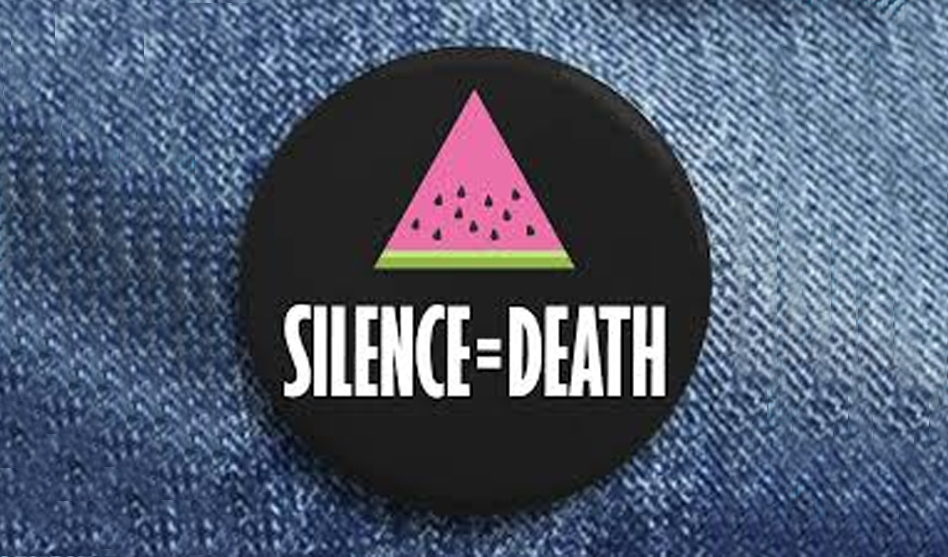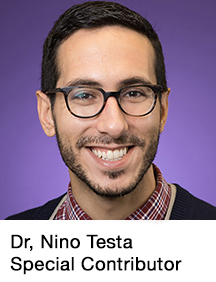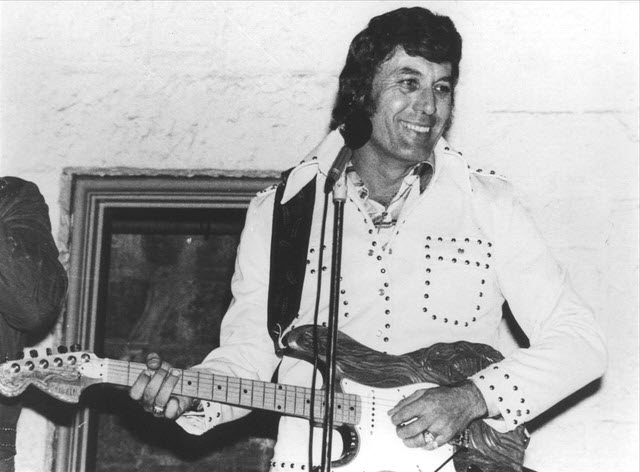VOICES: Anti-war protests at Pride were a moral imperative

 On July 12, Dallas Voice published an op-ed by guest columnist Mark Segal criticizing those of us who have spoken out against LGBTQ complicity in the ongoing genocide in Gaza. In the article, Segal accuses the many queer people who protested Pride parades across the country this June of “trying to destroy a central part of our movement for equality.” He equated these protesters with the anti-queer forces that regularly attack our community, saying these protesters “are no better than those who wish we didn’t exist.”
On July 12, Dallas Voice published an op-ed by guest columnist Mark Segal criticizing those of us who have spoken out against LGBTQ complicity in the ongoing genocide in Gaza. In the article, Segal accuses the many queer people who protested Pride parades across the country this June of “trying to destroy a central part of our movement for equality.” He equated these protesters with the anti-queer forces that regularly attack our community, saying these protesters “are no better than those who wish we didn’t exist.”
These accusations are offensive and part of an ongoing effort to shame and silence those who oppose the genocide and stand in solidarity with the people of Gaza.
I stood outside Fair Park on June 2 with dozens of other queer people to protest not the visibility of queer and trans people, not our joy, our celebration, our community, and certainly not our right to exist. What Segal’s commentary studiously fails to acknowledge is that Pride celebrations across the country are sponsored by corporations complicit in genocide.
For example, Dallas Pride was sponsored by the Boeing Company and Lockheed Martin, who supply Israel with jets, helicopters, missiles, bombs, and all kinds of supplies that are used against international law to kill Palestinian civilians. Every year, when queer people who believe in life, peace, and justice say we want to exclude war-winning corporations from the Pride program, we are told to shut up; business as usual.
This year, as these corporations continued to contribute to the utter destruction of Gaza, we stood together and called on our community to confront them. Queer people around the world did the same. This kind of action is at the heart of Pride.
According to an oral history interview he conducted with Outwords, Segal was one of the founders of the Gay Raiders and helped plan disruptive acts of civil disobedience during his youth. Despite being so proud of his own participation in the Gay Liberation Front and the Stonewall uprising, Segal has nothing good to say about a new generation of young people using their power to demand justice. He tries to invalidate our protests by accusing us of “not understanding the meaning of Stonewall, our history, or our pride.” He even calls us a “disgrace” to the memory of Stonewall.
While I don’t claim to be the definitive statement on the meaning of Stonewall, we should remember the mantra that has graced many of our protest signs, buttons, and social media feeds in recent years: The first Pride was a revolt. It was a revolt against state violence. Whether that violence is perpetrated by a city cop in a gay bar in 1969 or by the Israeli military in 2024, we should stand against it.
Segal tries to shift the focus from the genocide itself to the methods used to protest against it, claiming, “The situation in Gaza can be very personal, but not at the cost of erasing our visibility.” But this is not the only time Segal has attacked anti-genocide protesters in the press. On April 29, in the Philadelphia Gay News (of which Segal is the founder and editor), he also called solidarity camps on college campuses “cowardly” because some people there voluntarily wear masks.
For Segal and many others, there seems to be no right, acceptable, appropriate way for people to express their opposition to a genocide for which we are paying.
How to properly fight genocide? At several recent town hall meetings with my Congressman Marc Veasey (TX-33), strong opposition to Veasey’s pro-genocide policies was met with accusations of disrespecting voters. This from a politician who regularly receives campaign money from the defense industry and who argued at the same events that Israel’s attack on Gaza was “good for the North Texas economy” because it brought many defense jobs to our community.
This summer, Veasey joined Republicans in sanctioning the International Criminal Court, which seeks to punish Israel for war crimes. He also joined Republicans in a vote to keep quiet about the death toll in Gaza. Most chillingly, he signed a letter to President Biden criticizing any attempt to slow the slaughter in Israel.
Meanwhile, doctors and medical personnel from Dallas – our neighbors – working in Gaza have reported unspeakable atrocities, including targeted attacks on civilians in hospitals and designated safe zones. Our brave neighbors – traumatized by the horrors they have seen – have called for an immediate ceasefire and asked all of us to do our part to ensure it happens as soon as possible.
Those in power will always try to control the tone and method of protest rather than take responsibility for their support of unimaginable violence. Make no mistake: this criticism of the methods of protest is a defense of the Israeli massacre.
In his article for the Philadelphia Gay News, Segal also resorts to tried-and-true pinkwashing logic to justify the mass deaths of Palestinians (and Arabs in general) by US bombs: “It’s time for LGBTQ+ people who support the Palestinian cause to make it clear that they do not support those who have literally and publicly made and acted on their vow of ‘death to homosexuals.'”
The common argument that LGBTQ+ people should support or at least ignore the mass deaths in Gaza because of anti-queer sentiments there is deeply racist and morally reprehensible. Let’s take a closer look.
While I was protesting, we were approached by a group of three conservative TikTok provocateurs who were at Dallas Pride to harass and shame queer people. They were filming some sort of Pride reveal as clickbait for right-leaning viewers. They took a break from their fearmongering about drag queens and trans people to harass us for supporting Palestine. Their favorite refrain (a conservative argument that can be found all over the internet) was, “In Gaza, they’d throw you off a roof.”
Suddenly, these conservatives who were supposed to mock and shame queer people were using queer identity as a justification for the destruction of Gaza.
We should not accept this racist logic. Queerphobia is not just prevalent in the Middle East. It exists all over the world, including here in Texas, as we know all too well, which has become the trans murder capital of the United States. If we are truly in solidarity with the queers in Gaza, the most urgent and fundamental way to support their lives is to stop bombing them and their families.
It is our moral obligation as LGBTQ people in the United States not to allow ourselves to be used as a justification for the murder of Palestinians. This is why the Pride protests in June of this year were politically urgent actions.
I love Pride. I love queer joy. I love queer people. But Pride isn’t just about parties, glitter, and dancing. It’s not just about the opportunity for wealthy gays to “move into the executive suite,” as Segal argues.
It is about creating a world of justice for all people and all living beings. As transgender poet and activist Alok once criticized in a powerful poem, “White men dance on stolen land (and) call it activism.”
Queer joy and celebration must not come at the expense of Palestinian lives. Pride must not be funded by the people and companies that kill Palestinians. It is long past time for every LGBTQ+ person to question their relationship to empire, settler colonialism, and war. It is long past time for us as a community to meet our moral responsibility to stand up against genocide.
Corporate representation, visibility politics, and rainbow capitalism are not the means to liberation. Our liberation is tied to the liberation of all those who fight for freedom.
How we tell the story of queer activism has enormous consequences for contemporary politics. With all due respect and gratitude to Segal for the work he has done for the community, telling the story of Pride as mere “visibility” diminishes the reach and impact of queer liberation movements.
ACT UP’s powerful imagery reminds us that “silence = death.” This year, as people continue to silence resistance to genocide, ACT UP-NY has redesigned its iconic pink triangle into a slice of watermelon to symbolize its solidarity with the movement for a free Palestine.
There may not be a Lady Gaga song about it, a happy hour dedicated to the issue, or an Employee Resource Group, but calling for a ceasefire and showing solidarity with the people of Gaza is something all LGBTQ+ people can be proud of, if only we have the courage and moral conviction to do so.
Nino Testa is an Associate Professor of Professional Practice in the Department of Women’s and Gender Studies at Texas Christian University. His teaching and research focuses on the history of queer and feminist activism, theory, and pedagogy. He is a board member of The Dallas Way: An LGBTQ History Project and volunteers for the Texas Equal Access Fund, Black & Pink, and the Cathedral of Hope of the United Church of Christ. He is an organizer with Jewish Voice for Peace-Boston.



